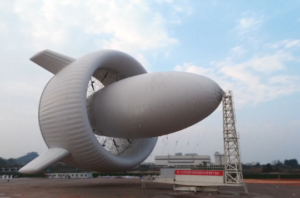 Pin
Pin Photo by Zelch Csaba
Time is not constant—it bends, stretches, and slows down depending on where you are. This isn’t science fiction; it’s a proven fact of physics. The idea that gravity slow down the flow of time might sound bizarre, but scientists have tested and confirmed it over and over again.
The stronger the gravity, the slower time moves. This means a person standing on a mountain ages slightly faster than someone at sea level. Astronauts in space age a little quicker than people on Earth because they experience weaker gravity. The difference is tiny—only microseconds—but it’s measurable.
Why does this happen? Gravity isn’t just a force pulling things down. Einstein’s theory of relativity shows that gravity warps spacetime itself. The more massive an object, the more it bends space and time. This bending slows time for anything caught in its grip. Black holes, with their extreme gravity, take this to the next level—time almost freezes at their event horizon.
Table of Contents
How Gravity is Born – The Source of This Mysterious Force
Gravity is often thought of as a pulling force, but it’s actually a warping of spacetime caused by mass and energy. The more mass something has, the stronger its gravitational field. This means that planets, stars, and even black holes all generate gravity simply by existing.
But how does this force come into existence? It all starts at the quantum level. Scientists believe that gravity may be carried by hypothetical particles called gravitons, just like how light is carried by photons. While we haven’t directly detected gravitons yet, this idea helps explain how gravity works at the smallest scales.
On larger scales, gravity is simply the result of massive objects bending space around them. Earth warps spacetime just enough to keep us anchored, while the Sun does it on a much larger scale, keeping planets in orbit. The more mass an object has, the deeper this ‘spacetime dent’ becomes, causing time to slow down within its influence.
What Happens When Gravity Becomes Extreme?
Gravity is subtle in our daily lives, but in extreme conditions, it bends reality itself. When an object is massive enough, its gravity warps spacetime so intensely that time itself slows to a crawl. The most extreme example of this is a black hole.
Near a black hole, gravity is so strong that nothing—not even light—can escape. If you were to approach a black hole, you would see the universe speeding up while your own clock slowed down. To an outside observer, you would appear frozen in time near the event horizon. But from your perspective, you’d still experience time normally.
Another extreme case is neutron stars, the collapsed remnants of massive stars. Their gravity is so strong that time on their surface moves noticeably slower than on Earth. Even on a less dramatic scale, Earth itself causes time to slow. Atomic clocks on satellites tick faster than those on the ground, and without corrections, GPS would become useless in a day.
Does Gravity Have a Limit or an End?
Gravity might feel infinite, but does it have a breaking point? The truth is, gravity extends forever, but its strength weakens with distance. No matter how far you travel, even the smallest amount of gravity from distant stars and galaxies is still present. However, there are situations where gravity becomes nearly irrelevant.
In the vast emptiness of space, where matter is spread thin, gravity’s influence is almost nonexistent. The expansion of the universe is also working against gravity. Distant galaxies are moving away from each other at increasing speeds, and some scientists believe that if this expansion continues indefinitely, gravity may become too weak to hold anything together.
On the other hand, if the universe were to eventually collapse back in on itself (a theory called the Big Crunch), gravity would become the dominant force again, pulling everything into a final singularity. But for now, in everyday life and even on cosmic scales, gravity is still one of the most powerful forces shaping the universe.
Can Gravity Be Used for Time Travel?
If gravity slows time, could it be the key to time travel? Technically, yes—but only forward. The stronger the gravity, the slower time moves for anyone near it. This means that if you could spend time near an extreme gravitational source, like a black hole, and then return to Earth, you would have aged less than everyone else.
This is a real effect, not just a theory. Astronauts on the International Space Station experience both gravitational and velocity-based time dilation. When they return to Earth, they are milliseconds younger than if they had stayed on the ground. If we could scale this up, someone orbiting a black hole for a few years might return to find centuries had passed on Earth.
However, traveling backward in time using gravity is much more complicated. Most physicists believe it would require wormholes, hypothetical tunnels in spacetime. Even if wormholes exist, they might not be stable or usable. For now, gravity remains the only proven way to slow time—meaning a one-way trip to the future might be possible.
Velocity-Based Time Dilation vs. Gravity-Based Time Dilation
Time dilation happens in two ways: high speed (velocity-based) and strong gravity (gravity-based). While both slow time, they work in different ways—and sometimes, they even compete with each other.
Velocity-Based Time Dilation (Special Relativity)
- The faster you move, the slower time passes for you relative to someone stationary.
- Astronauts on the ISS (28,000 km/h) experience this effect. Their high speed means time moves slower for them compared to people on Earth.
- If a spaceship traveled near the speed of light, its crew would experience just a few years, while centuries pass on Earth.
Gravity-Based Time Dilation (General Relativity)
- The stronger the gravity, the slower time moves for anyone near it.
- Near a black hole, time slows down so much that a person near it could experience minutes while millions of years pass elsewhere.
- On Earth, clocks at higher altitudes tick slightly faster than those at sea level because gravity is weaker.
Which One Wins in Space?
- On the ISS, both effects happen at the same time:
- Weaker gravity makes time move slightly faster for astronauts.
- High speed makes time move slower for them.
Since the velocity effect is stronger, astronauts age slightly slower than people on Earth. But if they were orbiting a supermassive black hole (like in Interstellar), the gravity effect would dominate, slowing their time dramatically.
How the Sun Holds Planets Without Pulling Them In
If the Sun’s gravity is so strong, why don’t planets just fall straight into it? The answer lies in a delicate balance between gravity and motion.
Planets are constantly moving. When the solar system formed, massive clouds of dust and gas collapsed under gravity, but they also had rotational motion. This spin set the planets into motion, and they’ve been moving ever since. If there were no Sun, planets would fly off in a straight line. But because the Sun’s gravity pulls them inward, their paths bend into elliptical orbits instead of flying off into space.
Think of it like swinging a ball on a string. The ball wants to fly outward, but the string keeps pulling it toward your hand. In space, the planets want to move forward in a straight line, but the Sun’s gravity bends their paths into stable orbits.
The only way a planet could fall into the Sun is if something drastically slowed it down—like a massive collision or strong gravitational interactions with another object. But since space is mostly empty, planets continue their paths, locked in this cosmic dance for billions of years.
How We Counteract Gravity – Defying the Force That Binds Us
Gravity is everywhere, constantly pulling us down. But despite its grip, humans have found ways to push back against it—from simple jumping to launching rockets into space.
Every time you lift something, you’re working against gravity. But Earth’s gravity is strong enough that breaking free entirely requires tremendous energy. That’s why rockets need massive amounts of fuel—reaching space means accelerating past 11.2 km/s (about 25,000 mph), the escape velocity needed to break free from Earth’s pull.
Airplanes don’t actually escape gravity; they use aerodynamic lift to stay in the sky. Birds, helicopters, and even floating in water all use forces that counteract gravity, but nothing truly eliminates it. Even astronauts in orbit aren’t escaping gravity—they’re just falling around Earth continuously, experiencing what we call microgravity.
The only way to completely cancel out gravity would be if we discovered an anti-gravity force—something that pushes instead of pulls. While some theories suggest exotic materials might do this, no real evidence exists yet.
Does Gravity Exist in the Quantum World?
Gravity is easy to see on large scales—it holds planets, stars, and galaxies together. But when we zoom in to the quantum level, things get weird. Unlike the other fundamental forces (electromagnetism, the strong nuclear force, and the weak nuclear force), gravity doesn’t fit neatly into quantum mechanics.
In quantum physics, forces are carried by particles. Light is carried by photons, the strong force by gluons, and so on. Scientists believe gravity might be carried by a hypothetical particle called the graviton. If gravitons exist, they would be massless and travel at the speed of light, like photons. But despite decades of searching, we haven’t found them yet.
One major problem is that gravity is incredibly weak compared to other forces. A tiny magnet can lift a paperclip against the pull of the entire Earth! This weakness makes it hard to detect gravitons. Until we solve this mystery, gravity remains the biggest missing piece in our understanding of the quantum world.
Could Understanding Gravity Unlock New Forms of Energy?
If we truly understood gravity at all levels, could we harness it as an energy source? The idea sounds futuristic, but there are already ways we indirectly use gravity for power.
Hydropower is a simple example—gravity pulls water downhill, spinning turbines to generate electricity. But what if we could tap into gravity on a deeper level? Some scientists theorize that if we could manipulate gravitons (if they exist), we might be able to generate energy from spacetime itself. This could lead to things like anti-gravity propulsion or limitless clean energy.
Another possibility comes from black holes. Some theoretical ideas suggest that spinning black holes could be used as a power source, extracting energy from their immense gravity. The problem? Black holes are far away and extremely dangerous.
For now, gravity remains a force we use indirectly rather than something we can fully control. But if we ever crack the mystery of quantum gravity, the potential for new energy technologies could be revolutionary.
Could Gravity Ever Disappear?
Gravity has shaped the universe since the beginning, but is it possible for it to just vanish? The short answer: no. As long as mass and energy exist, gravity will always be present. However, there are some extreme scenarios where gravity’s effects could weaken or become irrelevant.
One theory suggests that in the far future, if the universe keeps expanding, galaxies will drift so far apart that gravity’s influence between them becomes negligible. This means that gravity won’t truly disappear, but it will become weaker on cosmic scales.
Another idea comes from quantum physics. Some physicists propose that gravity may not be a fundamental force at all, but an emergent property of spacetime itself. If this is true, then in certain exotic conditions—like inside a perfectly balanced quantum system—gravity could theoretically be “canceled out” or manipulated.
But in reality, for everyday life, gravity isn’t going anywhere. It will keep us grounded, keep planets in orbit, and continue shaping the universe for billions of years to come.
FAQs
Yes, in theory. At the event horizon of a black hole, time slows down so much that to an outside observer, it appears to stop entirely. However, from the perspective of someone falling in, time would still feel normal.
Yes, but only slightly. Time moves slower on Earth compared to orbit due to stronger gravity. However, astronauts experience both gravitational time dilation (slower aging) and relativistic time dilation (faster aging due to speed), so the net effect depends on their motion.
Yes! In a vacuum, all objects fall at the same rate regardless of mass. This was proven by Galileo and confirmed by Apollo 15 astronauts who dropped a feather and hammer on the Moon—both hit the ground at the same time.
Not by manipulating gravity directly, but we can simulate it using rotation. Space stations could use centrifugal force to create a gravity-like effect for astronauts.
Yes, gravity moves at the speed of light. If the Sun were to suddenly vanish, Earth wouldn’t feel the loss of gravity instantly—it would take about 8 minutes (the time light takes to reach us).
































